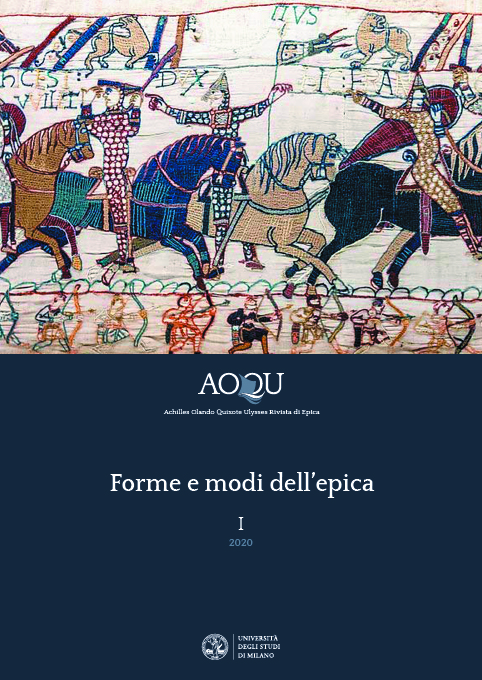Abstract
This paper hosts three case-studies that are meant to be representative of paradigm-shifting trends in Homeric Studies and to cater to specialists and non-specialists alike. Boosted by new archaeological findings and by an increased awareness of Homer’s Near-Eastern entanglements, the “historicity” of the poems has regained centre stage. Against this backdrop, Andrea Debiasi develops a persuasive interpretation of Homer’s name, whose meaning points to the performative-agonistic dimension of Homeric poetry in the context of the clashes that characterized Euboia in the archaic age. By contrast, George Gazis focuses on the one aspect of the Homeric world that cannot possibly be mapped onto space and history, namely Hades. The underworld is unfathomable even for the gods, which accounts for its potential as a trigger of poetic invention. No less than Debiasi’s, this approach resonates with recent scholarship: a return to “history” is often complemented by an opposite, but fully compatible, “symbolic” trend, which has unraveled the systematic juxtaposition, in Homer’s world, between “history” and symbolic constructs. Finally, Cecilia Nobili shows that Homeric epics builds on pre-existing poetic genres such as elegy, although the earliest extant examples of the latter date to a later time. The claim that lyric poetry emerges though a confrontation with epics, then, is no less plausible than its opposite. One more important consequence of Nobili’s approach is that the “subjective” turn scholars have long recognized in Hellenistic and Roman epics is in fact firmly grounded in Homer himself.

